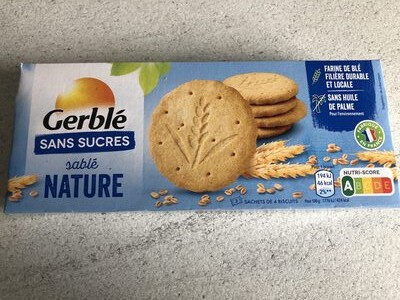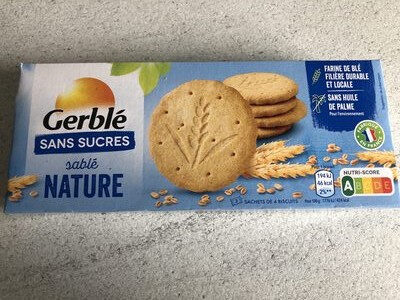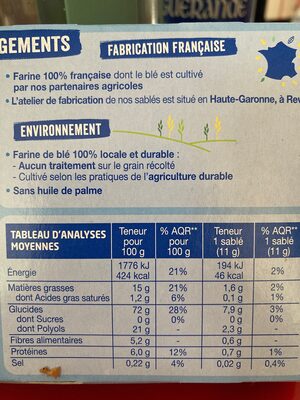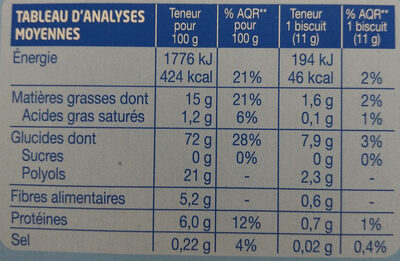Gerblé - Sugar Free Shortbread, 132g (4.7oz)
This product page is not complete. You can help to complete it by editing it and adding more data from the photos we have, or by taking more photos using the app for Android or iPhone/iPad. Thank you!
×
Barcode: 3175681134904 (EAN / EAN-13)
Common name: Biscuits sans sucre
Quantity: 132g
Packaging: Bag, Box, Individual bag, fr:Etui en carton, fr:Sachet en plastique
Brands: Gerblé
Categories: Snacks, Sweet snacks, Biscuits and cakes, Biscuits, Shortbread cookies
Labels, certifications, awards:
Made in France, No colorings, Nutriscore, Nutriscore Grade A, Triman, Peu ou pas de sucre, Sans huile de palme, Sans sucre
Origin of the product and/or its ingredients: Fabriqué en France
Manufacturing or processing places: France
Link to the product page on the official site of the producer: http://www.gerble.fr
Stores: Super U, Magasins U, carrefour.fr
Countries where sold: France, Switzerland, United States
Matching with your preferences
Report a problem
Data sources
Product added on by openfoodfacts-contributors
Last edit of product page on by annelotte.
Product page also edited by 8run0, autorotate-bot, date-limite-app, driveoff, ecoscore-impact-estimator, elttor, emiliemag31, feat, gavingt, inf, jhergault, kiliweb, magasins-u, mapifrasi, p20n, packbot, quechoisir, roboto-app, scanbot, smoothie-app, tacinte, tacite, teolemon, thaialagata, val-20o4, yonaile64, yuka.VnA4eERLMGVsdElzd3ZRZjJnbkU0ZXNzNHJhclFIL25kT0UvSVE9PQ, yuka.YTVBT0ZMb3JoTWNxbzh3aDNqckt5L2hYN1ptWEEzaU5HYllmSWc9PQ, yuka.ZDRSWkZmMHF1ZHNUbE1BRS9CaUoxdDl3eExuMFVVV3lLY1ZKSUE9PQ, yuka.ZllsY0hyOFlvOGhUdWN3bm93enc2UE5NNTZXQ0FrbTFKZkFUSVE9PQ.












